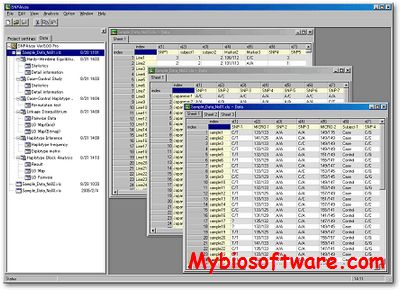SCORE-Seq 7.1
:: DESCRIPTION
SCORE-Seq is a command-line program for detecting disease associations with rare variants in sequencing studies. The mutation information is aggregated across multiple variant sites of a gene through a weighted linear combination and then related to disease phenotypes through appropriate regression models. The weights can be constant or dependent on allele frequencies and phenotypes. The association testing is based on score-type statistics. The allele-frequency threshold can be fixed or variable. Statistical significance can be assessed by using asymptotic normal approximation or resampling. A detailed description of the methods is given in Lin and Tang (2011). The current release covers binary and continuous traits with arbitrary covariates under case-control and cross-sectional sampling
::DEVELOPER
:: SCREENSHOTS
N/A
::REQUIREMENTS
- Linux
:: DOWNLOAD
:: MORE INFORMATION
Citation
Lin, D. Y. and Tang, Z. Z. (2011).
A General Framework for Detecting Disease Associations With Rare Variants in Sequencing Studies.
American Journal of Human Genetics, 89, 354-367.
